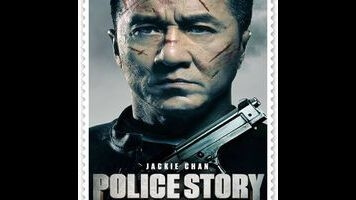Chan is 61 years old, which means he’s long past his physical prime, exemplified in the first Police Story film in 1985. (It’s one of the great martial arts and stunt showcases of all time.) Lockdown, which has nothing to do with that series beyond borrowing its name, has been conceived with its star’s new reticence in mind. His character is a grizzled, veteran detective with a university-age daughter who has lately chided him for being distant (he chides her right back for her inappropriate outfits and defiant behavior). The setup recalls Taken—and Chan is actually two years younger than silver-foxy Liam Neeson. But instead of a kidnapped-daughter plot, Ding Sheng’s film contrives a scenario in which Chan’s Detective Zhong is the one who’s held hostage, along with an entire nightclub’s worth of strangers strategically targeted for harm by its proprietor.
The first sign that Wu Jiang (Liu Ye) is a bad guy is that he’s adorned his eponymous Wu Bar with an enormous tank containing piranhas—the pet fish of choice for wannabe supervillains. (The film observes Chekhov’s rules about piranhas, which is that once introduced, they have to at the very least be given the opportunity to nibble on some human fingers.) And, like all movie bad guys, Wu is dumb enough to leave the bar with Zhong tied to a chair and under the supervision of some henchmen. A couple of scenes later, the supercop is on the loose and communicating with his comrades on the outside.
The ostensible intrigue of Lockdown lies more in the why of Wu’s plan to entrap a large group of people inside his club than whether or not he’ll be foiled by Zhong. It takes a long time to get to the big reveal, and when it comes, it’s so ridiculous that it stops the movie dead in its tracks—although to be honest, it doesn’t exactly work in a lot of momentum in the first place. This is a very poorly paced and structured movie, cutting between time periods to fill in the sort of convoluted backstory that a leaner, more propulsive piece of pulp probably wouldn’t bother with in the first place. Instead of a claustrophobic thriller à la Die Hard or The Raid, Lockdown is a kind of puzzle-box movie, but it hardly seems worth the effort, for the filmmakers or for the audience. Ol’ Jackie needn’t have bothered getting up for this.


 Keep scrolling for more great stories from A.V. Club.
Keep scrolling for more great stories from A.V. Club.